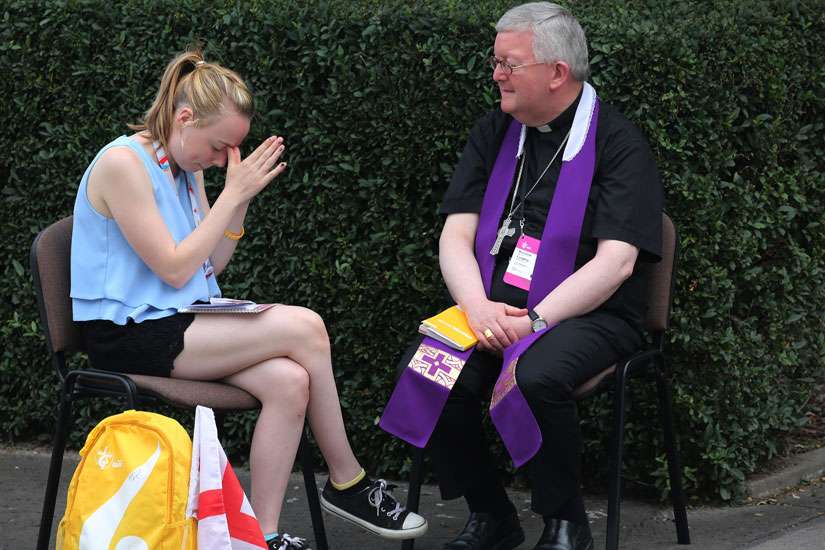The text, entitled “The Beauty of Mercy: Pope Francis and Confession,” compiles a series of Pope Francis’ quotations on the sacrament. It’s intended to “aid Canadian Catholics in celebrating the Extraordinary Jubilee Year of Mercy” and to “encourage and challenge both penitents and priest confessors,” according to a release on the CCCB web site.
The four-page text, prepared by the bishops’ Episcopal Commission for Doctrine, is divided into the following headings: God never Tires of Forgiving Us; Finding God’s Forgiveness through the Church; Responsibilities of Priest Confessors; and Confession in the Jubilee Year of Mercy.
“Since he was elected Bishop of Rome, Pope Francis has continually emphasized the infinite mercy of a God who never tires of reaching out,” the document says. “Throughout his teachings, the Holy Father has put forth the Sacrament of Confession as a gift that permits each one of us to encounter the mercy of God in a personal and profound way.”
The quotes from Pope Francis describe the sacrament as one of healing, forgiveness and mercy.
The CCCB document points out however, how the sacrament is anchored in the Church.
“The Holy Father stresses that forgiveness is not something that we can give ourselves,” it says. It goes on to say simply asking God for forgiveness “in one’s own mind and heart” is not enough, because “Jesus Himself entrusted to the Church the ministry of the forgiveness of sins.”
Going to a priest is a humbling experience that may induce shame and requires courage, the document says.
“(The Pope) continually stresses that the Sacrament of Reconciliation is a profound gift that strengthens our personal relationship with Christ, heals us and renews our baptism when we were first incorporated into the community of faith.”
The document’s longest section deals with the responsibilities of priest-confessors in helping penitents find peace, understanding, liberation and happiness.
“Being merciful is not the same as being lenient as a confessor — nor is being rigid a way to offer mercy, Pope Francis says. Neither the lax nor the rigid confessor ‘treats the penitent as brother, taking him by the hand and accompanying him in his conversion!’ ” the document says. “Rather, the truly merciful confessor listens, accompanies and encourages.”
The document exhorts priests to discover through their own examination of conscience and availing of the sacrament its healing power for deeper conversion.
It concludes with Pope Francis’ invitation during the Jubilee Year of Mercy to focus on the Sacrament of Reconciliation as “an important dimension of experiencing God’s mercy.”
“So many people, including young people, are returning to the Sacrament of Reconciliation; through this experience they are rediscovering a path back to the Lord, living a moment of intense prayer and finding meaning in their lives,” the document says, quoting Pope Francis.


